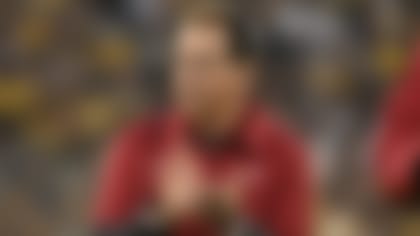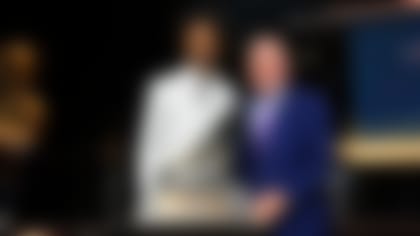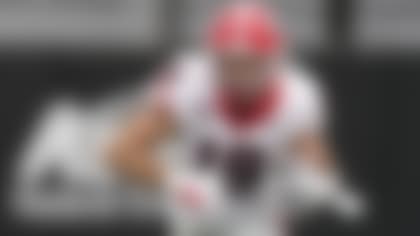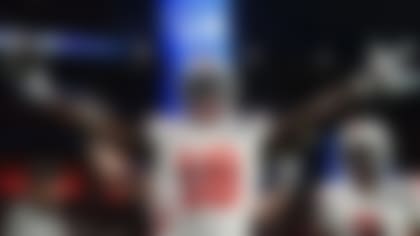Oakland's trade for former Texans quarterback Matt Schaub on Friday means that five teams drafting in the top eight have either acquired or re-signed a veteran at the position.
Houston, which owns the top pick, signed Ryan Fitzpatrick. Jacksonville, which picks third, re-signed Chad Henne. Oakland, which picks fifth, will have Schaub. Tampa Bay, which picks seventh, signed Josh McCown. And Minnesota, which picks eighth, re-signed Matt Cassel.
The additions/re-signings have added even more intrigue to the early part of the first round, and now there is at least some wiggle room if any of those five teams chooses to bypass drafting a quarterback early.
Presumably, Oakland views Schaub as a short-term answer at quarterback. Houston's new coaching staff obviously wasn't comfortable with Schaub, which led to the Texans acquiring Fitzpatrick. There is least one other notable difference between Houston and Oakland: There are far more pieces in place with the Texans than with the Raiders, which means a rookie quarterback with the Texans will have a much better supporting cast on both sides of the ball than a rookie quarterback with the Raiders.
One point that has been hammered home in the past month or so of the run-up to the draft is that there is a deep pool of candidates at positions such as offensive tackle and wide receiver and potential standouts at defensive end and outside linebacker. As NFL Media draft analyst Mike Mayock emphasized this week, "You'd better make darn sure that you fall in love with (UCF's Blake Bortles) or one of the other quarterbacks before you pull the trigger because the positional kids are so darn good."
The veteran quarterback shuffling that has gone on has led to two schools of thought:
- The teams that have acquired a veteran will use their early picks on a player other than a quarterback, then try to find a quarterback in the second or third round because this is considered a deep draft for signal-callers.
- The veterans are nothing more than stop-gaps or mentors brought in to start for the first month or so while the rookie gets ready, then serve as a veteran backup or sounding board once the rookie takes the starting job.
The second scenario seems more likely for the Raiders (and Houston, too). In Oakland's case, if Schaub was inconsistent with a talented Texans team, how can he succeed with a less-talented Raiders roster? And if ever a team has needed a talented quarterback it can build around, it's the Raiders: They haven't had a quarterback start all 16 games since Rich Gannon in 2002. Since that season, 18 players have started at least one game at quarterback for Oakland (that incudes Gannon, who started a combined 10 games in 2003 and '04).
As with all the veterans who have signed or re-signed, Schaub is considered a cerebral quarterback who remains on an even keel. That's the kind of veteran you want mentoring a young player.
As anyone who follows the draft process knows, Bortles, Louisville's Teddy Bridgewater and Texas A&M's Johnny Manziel are considered the top three quarterbacks. Fresno State's Derek Carr is on the second tier by himself, and he seemingly is gaining more traction as a potential first-rounder, though late in the round.
Houston's pick will set the tone. If the Texans choose a quarterback, it seems likely that there could be some angst in the draft rooms of Jacksonville; Cleveland, which hasn't made a move for a veteran but still looks to be in the market for a quarterback and also has two first-round picks; Oakland; Tampa Bay and Minnesota. Conversely, if the Texans bypass a quarterback at No. 1, there probably will be less teeth-gnashing going on with the other teams.
Oakland almost certainly is one of the teams that wants Houston to bypass a quarterback at No. 1. Despite the Schaub acquisition, the Raiders desperately need one.
Mike Huguenin can be reached at mike.huguenin@nfl.com. You also can follow him on Twitter @MikeHuguenin.











